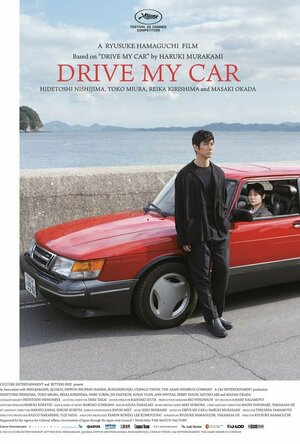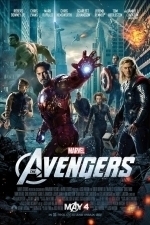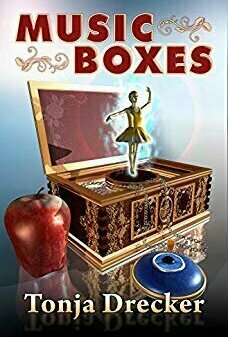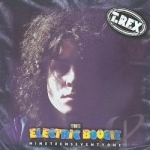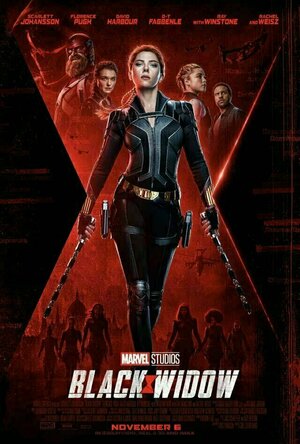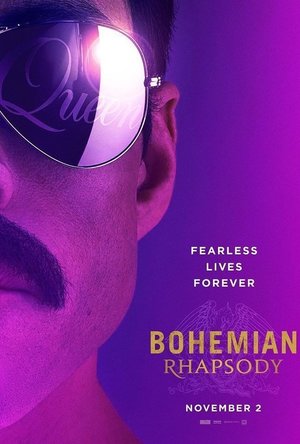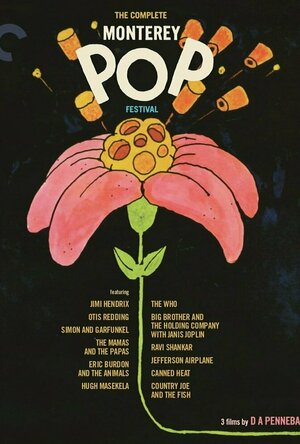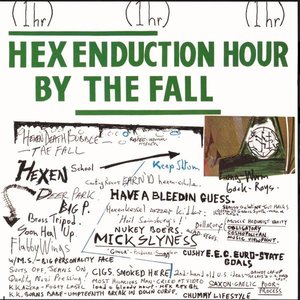Search
Search results
BankofMarquis (1832 KP) rated Drive My Car (2021) in Movies
Mar 19, 2022
Raw, Pure and Honest
If I’m being honest, I purposely pushed my Oscar “homework assignment” of viewing DRIVE MY CAR to the end of the list for I saw that it was a 3 Hour Japanese Film that is a meditation on loss, grief, anger and regret set against the backdrop of a production of Chekov’s Uncle Vanya. I was ready to buckle-in for an arty “Art House” film that is not as good as the “artists” recommending it would have you believe.
And I would be wrong with that assumption as DRIVE MY CAR is the BEST FILM of 2021 with raw, pure and honest performances that draws you in and touches your heart.
Directed by Ryusuke Hamaguchi (who was Oscar Nominated for his work), DRIVE MY CAR follows a renowned Actor/Director who heads to Hiroshima to Direct a production of Uncle Vanya while grappling with the consequences of the unexpected death of his wife - and the unresolved issues of their marriage. While in Hiroshima, he is forced to accept a chauffeur for his duration there and the relationship between the two begins to unlock long dormant emotions.
Sounds like it could end up being a modern version of DRIVING MISS DAISY, right? Wrong. In the hands of Hamaguchi, from an Oscar Nominated screenplay that Hamaguchi wrote with Takamasa Oe (based on the short story by Haruki Murakami), Drive My Car becomes a character-driven drama that peels the layers of the onion back at a deliberate pace (in this case, that’s a compliment) to reveal what is at the core of the main characters.
What drew me into this film (a movie who’s 3 hour run-time seemed short to me), was the performances that Hamaguchi was able to draw out of his talented cast, they are - top to bottom - raw, honest and real. Starting with Hidetoshi Nishijima as Actor/Director Yusuke Kafuku. He plays this character with a stoic pragmatism, but it is played in such a way that you understand that there are emotions broiling underneath this façade and they, eventually, will need to find their way out. But the brilliance of this film is that when this character finally opens up, it is not a showy, “yelly” performance, it is subtle, small - and effective.
Matching Nishijima’s stoicism (at least early on) is Toko Miura as the chauffer. She is enigmatic in the early goings of the film, listening much more than talking but as Kafuku opens up, she does as well, and it is this part of the film that really drew me in.
Also, surprisingly to me, was the rehearsal/performance scenes of Uncle Vanya that are sprinkled throughout this film. I am NOT a scholar (or fan) of Chekov’s works (I find them to be too introspective) but the scenes that are shown are a mirror to what is happening to these characters outside of the theater and were affecting (particularly a scene that the company does in the park between two female characters). I’m sure a Chekov scholar could comment on the parallel themes at work here - but I am not that scholar and that did not diminish my love of this film. It does do one surprising thing - it makes me (almost) want to see a full production of Vanya…almost.
And therein lies another layer to this film - the eclectic group of performers that populate the company of actors that perform Vanya - they perform in Japanese, Mandarin, English and (in one case) sign language. I was reading the subtitles anyway (yes, please view this film in it’s original language with subtitles - you’ll feel the emotions of the actors’ performances) and this disparity between the performers enhanced what was already an intriguing film.
Not for everyone, the pace and themes of this film will turn many off early on, but if you click into the feel of this film, you will be rewarded with a very rich experience.
Letter Grade: A
9 stars (out of 10) and you can take that to the Bank(ofMarquis)
And I would be wrong with that assumption as DRIVE MY CAR is the BEST FILM of 2021 with raw, pure and honest performances that draws you in and touches your heart.
Directed by Ryusuke Hamaguchi (who was Oscar Nominated for his work), DRIVE MY CAR follows a renowned Actor/Director who heads to Hiroshima to Direct a production of Uncle Vanya while grappling with the consequences of the unexpected death of his wife - and the unresolved issues of their marriage. While in Hiroshima, he is forced to accept a chauffeur for his duration there and the relationship between the two begins to unlock long dormant emotions.
Sounds like it could end up being a modern version of DRIVING MISS DAISY, right? Wrong. In the hands of Hamaguchi, from an Oscar Nominated screenplay that Hamaguchi wrote with Takamasa Oe (based on the short story by Haruki Murakami), Drive My Car becomes a character-driven drama that peels the layers of the onion back at a deliberate pace (in this case, that’s a compliment) to reveal what is at the core of the main characters.
What drew me into this film (a movie who’s 3 hour run-time seemed short to me), was the performances that Hamaguchi was able to draw out of his talented cast, they are - top to bottom - raw, honest and real. Starting with Hidetoshi Nishijima as Actor/Director Yusuke Kafuku. He plays this character with a stoic pragmatism, but it is played in such a way that you understand that there are emotions broiling underneath this façade and they, eventually, will need to find their way out. But the brilliance of this film is that when this character finally opens up, it is not a showy, “yelly” performance, it is subtle, small - and effective.
Matching Nishijima’s stoicism (at least early on) is Toko Miura as the chauffer. She is enigmatic in the early goings of the film, listening much more than talking but as Kafuku opens up, she does as well, and it is this part of the film that really drew me in.
Also, surprisingly to me, was the rehearsal/performance scenes of Uncle Vanya that are sprinkled throughout this film. I am NOT a scholar (or fan) of Chekov’s works (I find them to be too introspective) but the scenes that are shown are a mirror to what is happening to these characters outside of the theater and were affecting (particularly a scene that the company does in the park between two female characters). I’m sure a Chekov scholar could comment on the parallel themes at work here - but I am not that scholar and that did not diminish my love of this film. It does do one surprising thing - it makes me (almost) want to see a full production of Vanya…almost.
And therein lies another layer to this film - the eclectic group of performers that populate the company of actors that perform Vanya - they perform in Japanese, Mandarin, English and (in one case) sign language. I was reading the subtitles anyway (yes, please view this film in it’s original language with subtitles - you’ll feel the emotions of the actors’ performances) and this disparity between the performers enhanced what was already an intriguing film.
Not for everyone, the pace and themes of this film will turn many off early on, but if you click into the feel of this film, you will be rewarded with a very rich experience.
Letter Grade: A
9 stars (out of 10) and you can take that to the Bank(ofMarquis)
Ryan Hill (152 KP) rated The Avengers (2012) in Movies
May 9, 2019
Some assembly required
There's a lot about this movie I love (it used to be one of my favorite films to rewatch when I was a teenager), one thing that really stood out to me about watching this again for the first time in awhile, is how much Whedon understands the language of comics.
Whenever people bring that aspect up, they usually talk about the splash panel inspired sequences (the long take through the Battle of New York), but nobody tends to talk about the choices he makes with how he and Seamus McGarvey decide to shoot the smaller scale scenes like they were regular panels.
Take Loki's entrance for example; as the laser begins to open the portal, we cut above, seeing how big the room is and how long the laser is, all in a wide, beautiful shot, taken from an angel to capture the intensity of the villain's entrance, and then that's followed up with a panel inspired close up on Loki's eyes as he breaks into a grin. Or the shot of Natasha being integrated from the prospective of the mirror in the room, and we see various different treasures as it pushes away from it.
Or probably the best example of this, is Steve's introduction; repeatedly working himself up with every punch, flashing back to the events in his life that make him feel the most intense, before punching it straight off its hook, only for him to grab another one of several he has lying there.
It's little touches like this that are sprinkled throughout, making you feel like you're watching a comic book in motion without having to go full on "Scott Pilgrim", "Into The Spider-Verse", "Speed Racer", or even "Batman: The Movie", along with capturing the lavish and striking lighting and colors found within some of the best artists for them.
Plus, while Whedon's writing is known for his sense of humor (for better and worse, especially when it comes to it's impact on the rest of these films post this one), I don't think enough of us take into account how much that humor is there to service the characters, not just the viewers.
Both this and his work with Drew Goddard on "Cabin in the Woods" showcase this perfectly. When Marty in "Cabin" asks if anyone else thinks something weird is going on when Curt contradict himself by saying they should split up, he isn't just saying that for the sake of a gag, it's Whedon and Goddard's way of hinting that he knows more than the others, and establishing that he's immune from these tricks being played on them.
When Steve and Tony are arguing about who's stronger and Steve keeps saying "put on the suit!", once shit hits the fan, he says it once again, but in a way that's far more urgent and fearful, not just being there for the sake of a funny payoff, but as progression for the next series of events that need to play out.
And, man....
There's just so many great moments. Not just the action or the characters working off of each other, but little moments, like the Old Man standing up for Earth to Loki, Steve giving Fury ten bucks after seeing the Helicarrier in action, Bruce mentioning the time he figured he had enough and how he couldn't end it himself, complete with the fear trembling in his voice and facial expression, Loki saying "I'm listening" as Thor was taken away from him, or his monologue to Natasha, the entire New York battle centering around them both trying to keep the army at bay and save as many by standards as possible, just too many to name.
It's one of the most memorable and entertaining blockbusters of this decade and while it doesn't feel as special seeing all of these people in the same movie anymore, it still has them at their best and manages to do it so effortlessly. Like it's one thing that this movie exists, but the fact that it worked is something that'll never not be amazing.
What else can I say, really? It's "The Avengers". You've likely seen it, memed about it, quoted it, referenced it, it doesn't matter, it's been here for nearly ten years now and it's impact is still felt and mentioned. As well as something that's super easy to put on and rewatch, either for some lazy day entertainment, or to revisit during the lead up to their next big adventure.....
Whenever people bring that aspect up, they usually talk about the splash panel inspired sequences (the long take through the Battle of New York), but nobody tends to talk about the choices he makes with how he and Seamus McGarvey decide to shoot the smaller scale scenes like they were regular panels.
Take Loki's entrance for example; as the laser begins to open the portal, we cut above, seeing how big the room is and how long the laser is, all in a wide, beautiful shot, taken from an angel to capture the intensity of the villain's entrance, and then that's followed up with a panel inspired close up on Loki's eyes as he breaks into a grin. Or the shot of Natasha being integrated from the prospective of the mirror in the room, and we see various different treasures as it pushes away from it.
Or probably the best example of this, is Steve's introduction; repeatedly working himself up with every punch, flashing back to the events in his life that make him feel the most intense, before punching it straight off its hook, only for him to grab another one of several he has lying there.
It's little touches like this that are sprinkled throughout, making you feel like you're watching a comic book in motion without having to go full on "Scott Pilgrim", "Into The Spider-Verse", "Speed Racer", or even "Batman: The Movie", along with capturing the lavish and striking lighting and colors found within some of the best artists for them.
Plus, while Whedon's writing is known for his sense of humor (for better and worse, especially when it comes to it's impact on the rest of these films post this one), I don't think enough of us take into account how much that humor is there to service the characters, not just the viewers.
Both this and his work with Drew Goddard on "Cabin in the Woods" showcase this perfectly. When Marty in "Cabin" asks if anyone else thinks something weird is going on when Curt contradict himself by saying they should split up, he isn't just saying that for the sake of a gag, it's Whedon and Goddard's way of hinting that he knows more than the others, and establishing that he's immune from these tricks being played on them.
When Steve and Tony are arguing about who's stronger and Steve keeps saying "put on the suit!", once shit hits the fan, he says it once again, but in a way that's far more urgent and fearful, not just being there for the sake of a funny payoff, but as progression for the next series of events that need to play out.
And, man....
There's just so many great moments. Not just the action or the characters working off of each other, but little moments, like the Old Man standing up for Earth to Loki, Steve giving Fury ten bucks after seeing the Helicarrier in action, Bruce mentioning the time he figured he had enough and how he couldn't end it himself, complete with the fear trembling in his voice and facial expression, Loki saying "I'm listening" as Thor was taken away from him, or his monologue to Natasha, the entire New York battle centering around them both trying to keep the army at bay and save as many by standards as possible, just too many to name.
It's one of the most memorable and entertaining blockbusters of this decade and while it doesn't feel as special seeing all of these people in the same movie anymore, it still has them at their best and manages to do it so effortlessly. Like it's one thing that this movie exists, but the fact that it worked is something that'll never not be amazing.
What else can I say, really? It's "The Avengers". You've likely seen it, memed about it, quoted it, referenced it, it doesn't matter, it's been here for nearly ten years now and it's impact is still felt and mentioned. As well as something that's super easy to put on and rewatch, either for some lazy day entertainment, or to revisit during the lead up to their next big adventure.....
BookwormMama14 (18 KP) rated The Reluctant Duchess (Ladies of the Manor, #2) in Books
Jan 2, 2019
I have been looking forward to The Reluctant Duchess since the moment I finished book one, The Lost Heiress! As the mystery of the Fire Eyes continues, we will follow Lady Rowena on her journey of faith and love.
About the Book
By the year 1912, Lady Rowena has suffered much and is determined to flee the terrors of her life in the Highlands of Scotland. Yet she reluctant to submit to the schemes designed for her escape. In a rather unconventional way, Brice Myerston, the Duke of Nottingham, sweeps in and saves her from a daunting future. With the Duke, Lady Rowena has the chance of a new life, new love and a new hope that she never thought possible. (Please tell me I am not the only one who started humming the Star Wars theme song just now.) Yet she is plagued with nightmares of the past. Afraid that she will never be worthy, convinced that no one could care about her. Rowena also discovers that Brice is involved with a treasure that brings sorrow wherever it goes. Will Brice be able to help her see the true worth and the beauty that lies within her? Will she find her confidence, her voice and maybe fall in love along the way? Can they overcome the "curse" of the Fire Eyes, together?
"Be whoever you want to be, and be it with confidence."
- The Reluctant Duchess (page 156)
My Thoughts
While I have no personal understanding of the exact situation that Lady Rowena experiences, I know full well the horror of emotional trauma. I avoid talking about our experience in my reviews because, books are my escape. I didn't want the stress, the
trauma, to slip into my posts. But after reading this book, I felt that I needed to share just a little bit. We have been through a lot with our son (medically) since he was born two years ago. He underwent a lifesaving Bone Marrow Transplant (non cancerous diagnosis) at 9 weeks old and everything that goes along with that: being isolated because he is immune suppressed, constant doctor visits, being hospitalized with even the slightest hint of a fever and so much more. Thankfully we are now at the tail end of our journey. He made it through his first cold and was not hospitalized! (Although he had a quick visit to the E.R. per his protocol.) But the effects of the last two years remain. For me, the thought of having to spend the night in the hospital with my son has brought on severe anxiety. Going shopping alone is a real challenge for me as well. While this may seem trivial to some, it is very real for me. What Rowena undergoes, and what I have experienced ( although different triggers) can be explained as PTSD. Because of this, I feel it only fair to give a heads up that separate from Rowena's experience, there is a heart wrenching circumstance near the end of the book that involves a child. I was caught quite off guard with it and know that can be a sensitive subject. This book was a very hard read for me emotionally. It is not a comedy, however I did laugh out loud a couple of times. Love, faith, hope and joy can be found in The Reluctant Duchess as well. I love Brice's faith, that he is actively listening to God in every situation. He acts on the voice he hears, and even though he may misinterpret the words on occasion, he does not let the condensation of his peers sway his faith. Overall, I really enjoyed this second book in Ladies of the Manor. Because it helped me to see myself in a new light. Roseanna captured the essence of the story beautifully. I absolutely LOVE her use of accents throughout the dialogue. All through the story we are reminded of the truth: Where LIGHT is, darkness cannot abide. Do not let the fear of the past distort your view of the future. I understand first hand the effects that can linger after a traumatic experience. But please, do not suffer in silence. Reach out to those who love you. And find hope for the future.
Brice ducked his head a bit, caught her gaze.
"And if you really want to spite them, do you know what you should do?"
He leaned closer, pitched his voice low.
"Thrive. Be happy."
- The Reluctant Duchess (page 156)
I received a free print copy of The Reluctant Duchess from Bethany House Publishers, through Celebrate Lit, in exchange for my honest review. All opinions expressed are mine alone.
About the Book
By the year 1912, Lady Rowena has suffered much and is determined to flee the terrors of her life in the Highlands of Scotland. Yet she reluctant to submit to the schemes designed for her escape. In a rather unconventional way, Brice Myerston, the Duke of Nottingham, sweeps in and saves her from a daunting future. With the Duke, Lady Rowena has the chance of a new life, new love and a new hope that she never thought possible. (Please tell me I am not the only one who started humming the Star Wars theme song just now.) Yet she is plagued with nightmares of the past. Afraid that she will never be worthy, convinced that no one could care about her. Rowena also discovers that Brice is involved with a treasure that brings sorrow wherever it goes. Will Brice be able to help her see the true worth and the beauty that lies within her? Will she find her confidence, her voice and maybe fall in love along the way? Can they overcome the "curse" of the Fire Eyes, together?
"Be whoever you want to be, and be it with confidence."
- The Reluctant Duchess (page 156)
My Thoughts
While I have no personal understanding of the exact situation that Lady Rowena experiences, I know full well the horror of emotional trauma. I avoid talking about our experience in my reviews because, books are my escape. I didn't want the stress, the
trauma, to slip into my posts. But after reading this book, I felt that I needed to share just a little bit. We have been through a lot with our son (medically) since he was born two years ago. He underwent a lifesaving Bone Marrow Transplant (non cancerous diagnosis) at 9 weeks old and everything that goes along with that: being isolated because he is immune suppressed, constant doctor visits, being hospitalized with even the slightest hint of a fever and so much more. Thankfully we are now at the tail end of our journey. He made it through his first cold and was not hospitalized! (Although he had a quick visit to the E.R. per his protocol.) But the effects of the last two years remain. For me, the thought of having to spend the night in the hospital with my son has brought on severe anxiety. Going shopping alone is a real challenge for me as well. While this may seem trivial to some, it is very real for me. What Rowena undergoes, and what I have experienced ( although different triggers) can be explained as PTSD. Because of this, I feel it only fair to give a heads up that separate from Rowena's experience, there is a heart wrenching circumstance near the end of the book that involves a child. I was caught quite off guard with it and know that can be a sensitive subject. This book was a very hard read for me emotionally. It is not a comedy, however I did laugh out loud a couple of times. Love, faith, hope and joy can be found in The Reluctant Duchess as well. I love Brice's faith, that he is actively listening to God in every situation. He acts on the voice he hears, and even though he may misinterpret the words on occasion, he does not let the condensation of his peers sway his faith. Overall, I really enjoyed this second book in Ladies of the Manor. Because it helped me to see myself in a new light. Roseanna captured the essence of the story beautifully. I absolutely LOVE her use of accents throughout the dialogue. All through the story we are reminded of the truth: Where LIGHT is, darkness cannot abide. Do not let the fear of the past distort your view of the future. I understand first hand the effects that can linger after a traumatic experience. But please, do not suffer in silence. Reach out to those who love you. And find hope for the future.
Brice ducked his head a bit, caught her gaze.
"And if you really want to spite them, do you know what you should do?"
He leaned closer, pitched his voice low.
"Thrive. Be happy."
- The Reluctant Duchess (page 156)
I received a free print copy of The Reluctant Duchess from Bethany House Publishers, through Celebrate Lit, in exchange for my honest review. All opinions expressed are mine alone.
Heather Cranmer (2721 KP) rated Music Boxes in Books
Oct 24, 2019
Music Boxes by Tonja Drecker seemed like the perfect chilling read for right around Halloween. A creepy middle grade mystery? Sign me up! Music Boxes lived up to my expectations for sure!
Twelve year old Lindsey has just moved from Nebraska to New York City in order for her younger sister to attend Julliard. In Nebraska, she was part of a fantastic ballet school. In New York, she only gets to dance at the drab community center. When a world renowned ballerina offers to give her free ballet lessons in exchange for dancing in her secret midnight shows, Lindsey can't believe her luck. She's tired of living in her younger sister's talented shadow, so she quickly obliges. However, Lindsey soon realizes that dancers given private lessons are going missing. What's even more worrying is after they disappear, a music box appears with a little ballet figure that looks like the missing dancer. Is there something sinister about Lindsey's new ballet teacher, or can everything be put down to a coincidence?
The plot for Music Boxes reminded me of a Goosebumps book which is saying a lot because I loved the whole Goosebumps series by R.L. Stine. I was quickly absorbed in the story from the very first page. Believe me when I say my eyes devoured this novel. Although somewhat predictable for adults, its target audience of middle schoolers will enjoy the many plot twists peppered throughout the book. If the pacing was perfect for me, I believe it will also keep younger readers interested. One of my favorite things about the world of Music Boxes was the dance school and how magical it really was. Another good thing about Music Boxes is there aren't any cliff hanger endings. All loose ends are tied up by the end of the story.
Ballet dancers will really enjoy Music Boxes by Tonja Drecker as there are quite a few ballet terms in it. I had no idea what they meant, but it didn't distract from the story. It would have been nice to have a glossary of ballet terms or some kind of description for those of us who aren't dancers. Plus, the whole story mainly takes place in a ballet school. However, I think non dancers will really enjoy the story too as it has elements that anyone can relate to such as friendship, family, and doing the right thing.
For a middle grade novel, I felt that all the characters felt really alive. Although I would have liked some more back story for a few more of the dancers from Madame Destinee's school, I felt like the most important characters in the novel had enough back story. Lindsey feels like a character that most young girls will be able to connect with whether they are interested in ballet or not. With her conflicting feelings of listening to her parents and wanting to do what she loves, it's easy to see why Lindsey is a relatable character. Lindsey is also very brave and comes across as just a nice girl in general. Bridget, Lindsey's 8 year old sister, was my favorite character. She's a very talented violinist and the reason Lindsey and her family moved to New York City. Even though the family seemed more focused on Bridget, Bridget never came across as having an over-inflated ego or like she was better than Lindsay. I loved how sweet Bridget was and how she wanted what was best for Lindsey. Madame Destinee was an interesting character for sure. I never trusted her from the get go, but it was easy to see why a young child would especially when she's offering them their chance to shine at doing something they really love. I also loved Broussard because I love dogs!
Trigger warnings for Music Boxes include kidnapping, witches, minor violence, and death (although done in a non-scary way).
All in all, Music Boxes is a fantastic story full of intrigue and mystery that readers of all ages will enjoy. The plot is creepy in a good way, and the characters are written superbly! I would definitely recommend Music Boxes by Tonja Drecker to everyone aged 10+. Yes, the target audience is probably 10 - 13 year olds, but I really think everyone would enjoy it. It's written that well!
-
(A special thank you to Silver Dagger Book Tours for providing me with an eBook of Music Boxes by Tonja Drecker in exchange for an honest and unbiased review.)
Twelve year old Lindsey has just moved from Nebraska to New York City in order for her younger sister to attend Julliard. In Nebraska, she was part of a fantastic ballet school. In New York, she only gets to dance at the drab community center. When a world renowned ballerina offers to give her free ballet lessons in exchange for dancing in her secret midnight shows, Lindsey can't believe her luck. She's tired of living in her younger sister's talented shadow, so she quickly obliges. However, Lindsey soon realizes that dancers given private lessons are going missing. What's even more worrying is after they disappear, a music box appears with a little ballet figure that looks like the missing dancer. Is there something sinister about Lindsey's new ballet teacher, or can everything be put down to a coincidence?
The plot for Music Boxes reminded me of a Goosebumps book which is saying a lot because I loved the whole Goosebumps series by R.L. Stine. I was quickly absorbed in the story from the very first page. Believe me when I say my eyes devoured this novel. Although somewhat predictable for adults, its target audience of middle schoolers will enjoy the many plot twists peppered throughout the book. If the pacing was perfect for me, I believe it will also keep younger readers interested. One of my favorite things about the world of Music Boxes was the dance school and how magical it really was. Another good thing about Music Boxes is there aren't any cliff hanger endings. All loose ends are tied up by the end of the story.
Ballet dancers will really enjoy Music Boxes by Tonja Drecker as there are quite a few ballet terms in it. I had no idea what they meant, but it didn't distract from the story. It would have been nice to have a glossary of ballet terms or some kind of description for those of us who aren't dancers. Plus, the whole story mainly takes place in a ballet school. However, I think non dancers will really enjoy the story too as it has elements that anyone can relate to such as friendship, family, and doing the right thing.
For a middle grade novel, I felt that all the characters felt really alive. Although I would have liked some more back story for a few more of the dancers from Madame Destinee's school, I felt like the most important characters in the novel had enough back story. Lindsey feels like a character that most young girls will be able to connect with whether they are interested in ballet or not. With her conflicting feelings of listening to her parents and wanting to do what she loves, it's easy to see why Lindsey is a relatable character. Lindsey is also very brave and comes across as just a nice girl in general. Bridget, Lindsey's 8 year old sister, was my favorite character. She's a very talented violinist and the reason Lindsey and her family moved to New York City. Even though the family seemed more focused on Bridget, Bridget never came across as having an over-inflated ego or like she was better than Lindsay. I loved how sweet Bridget was and how she wanted what was best for Lindsey. Madame Destinee was an interesting character for sure. I never trusted her from the get go, but it was easy to see why a young child would especially when she's offering them their chance to shine at doing something they really love. I also loved Broussard because I love dogs!
Trigger warnings for Music Boxes include kidnapping, witches, minor violence, and death (although done in a non-scary way).
All in all, Music Boxes is a fantastic story full of intrigue and mystery that readers of all ages will enjoy. The plot is creepy in a good way, and the characters are written superbly! I would definitely recommend Music Boxes by Tonja Drecker to everyone aged 10+. Yes, the target audience is probably 10 - 13 year olds, but I really think everyone would enjoy it. It's written that well!
-
(A special thank you to Silver Dagger Book Tours for providing me with an eBook of Music Boxes by Tonja Drecker in exchange for an honest and unbiased review.)
Johnny Marr recommended track Jeepster by T Rex in Electric Boogie 1971 by T Rex in Music (curated)
Emma @ The Movies (1786 KP) rated Black Widow (2021) in Movies
Jul 11, 2021
After the MCU rounded up with Endgame I was having Marvel fatigue, I had my issues with the Spider-man movie, and I haven't been thrilled by the TV series that we've been getting on Disney+. I had managed to avoid most of the Black Widow coverage until getting back to the cinema, but even seeing the trailer on the big screen didn't get me pumped for it.
Natasha Romanoff is on the run... rewind the MCU a bit... Black Widow is on the run after the incident with the Sokovia accords. While she's on the move (and somehow invisible to detection despite being an Avenger... on the run) her past catches up with her, and after an awkward family reunion, they have to work together to rectify the mistakes of the past.
So how did this next outing in the MCU go down?
I wasn't mad about, or at, it. It nicely aligned itself with its position in the universe in a way that didn't feel too forced, and finally getting the history that the previous films alluded to... well, it was about time. I was surprised how well it managed to condense her story down and still manage to give enough to help it flow. I'm not sure it's the story I was expecting, or necessarily hoped for, but it was good. (I had assumed that we would be getting more about the inside of the Red Room, and not the results of it on the older recruits.)
Johansson gave a solid performance as you'd expect, she's perfected the role over the years and this performance sat well within the character she'd already developed. But what about the other cast members?
MVP for me was Florence Pugh as Yelena. A little frustrating for me to say, but I said it. The sisterly bond with Natasha was there in spades and she managed to grasp the emotion of the family moments so well. And her comedic timing with the sharp script was magnificent. I was delighted every time I saw her on the screen.
Playing Natasha and Yelena's parents are David Harbour and Rachel Weisz. An amusing pairing, with a very opposites attract kind of vibe. Alexie (Harbour) seems to change a lot from the historical points, and he also gets the comical treatment too, but in a more over the top way than Yelena. He had his moments, though I'm not sure it all landed. Weisz plays Melina, a straight-laced scientist/spy. Together they make an interesting team, but I'm not convinced that Melina would have stood up without Alexie.
My only problem with the case? Sometimes I found it a little jarring hearing those accents. Sure, it's nice to have a big recognisable cast, but listening to those accents from people you know really well from other things was continually off-putting.
I was thankful when the story started to pick up a bit. The beginning felt like a bit of a slog, and I was starting to lose hope. Looking back on it, 2 hours 13 minutes is a lot for what happened. It could easily have tightened up a bit and come in at around 2 hours. (And on the other end of the film, though completely separate to the run time... why put the credit scene right at the end?!)
The benefit of this film when it came to effects is that there was very little out of the ordinary that needed to be done. That meant that everything looked good on screen. I honestly didn't spot anything that stuck out like a sore thumb... or a Thanos henchman... that seems more appropriate given the film's universe. The studio have got CGI down to a fine art at this point.
As I said above, Black Widow gave a nice story to the character, and I can't help but think that they could have given her this before now, and not kicked her out into the sidelines behind the male superheroes. (Well, apart from Hawkeye, poor bugger.) I'm not bothered about seeing this again, which is odd for me as I will usually try and see a Marvel in 3D too. Even odder, because it's basically all that's on at my cinema right now. But I don't feel like I need to go back to try and spot things to link to other films. It feels very inconsequential at this point and, while I enjoyed it, a bit of a letdown.
Originally posted on: https://emmaatthemovies.blogspot.com/2021/07/black-widow-movie-review.html
Natasha Romanoff is on the run... rewind the MCU a bit... Black Widow is on the run after the incident with the Sokovia accords. While she's on the move (and somehow invisible to detection despite being an Avenger... on the run) her past catches up with her, and after an awkward family reunion, they have to work together to rectify the mistakes of the past.
So how did this next outing in the MCU go down?
I wasn't mad about, or at, it. It nicely aligned itself with its position in the universe in a way that didn't feel too forced, and finally getting the history that the previous films alluded to... well, it was about time. I was surprised how well it managed to condense her story down and still manage to give enough to help it flow. I'm not sure it's the story I was expecting, or necessarily hoped for, but it was good. (I had assumed that we would be getting more about the inside of the Red Room, and not the results of it on the older recruits.)
Johansson gave a solid performance as you'd expect, she's perfected the role over the years and this performance sat well within the character she'd already developed. But what about the other cast members?
MVP for me was Florence Pugh as Yelena. A little frustrating for me to say, but I said it. The sisterly bond with Natasha was there in spades and she managed to grasp the emotion of the family moments so well. And her comedic timing with the sharp script was magnificent. I was delighted every time I saw her on the screen.
Playing Natasha and Yelena's parents are David Harbour and Rachel Weisz. An amusing pairing, with a very opposites attract kind of vibe. Alexie (Harbour) seems to change a lot from the historical points, and he also gets the comical treatment too, but in a more over the top way than Yelena. He had his moments, though I'm not sure it all landed. Weisz plays Melina, a straight-laced scientist/spy. Together they make an interesting team, but I'm not convinced that Melina would have stood up without Alexie.
My only problem with the case? Sometimes I found it a little jarring hearing those accents. Sure, it's nice to have a big recognisable cast, but listening to those accents from people you know really well from other things was continually off-putting.
I was thankful when the story started to pick up a bit. The beginning felt like a bit of a slog, and I was starting to lose hope. Looking back on it, 2 hours 13 minutes is a lot for what happened. It could easily have tightened up a bit and come in at around 2 hours. (And on the other end of the film, though completely separate to the run time... why put the credit scene right at the end?!)
The benefit of this film when it came to effects is that there was very little out of the ordinary that needed to be done. That meant that everything looked good on screen. I honestly didn't spot anything that stuck out like a sore thumb... or a Thanos henchman... that seems more appropriate given the film's universe. The studio have got CGI down to a fine art at this point.
As I said above, Black Widow gave a nice story to the character, and I can't help but think that they could have given her this before now, and not kicked her out into the sidelines behind the male superheroes. (Well, apart from Hawkeye, poor bugger.) I'm not bothered about seeing this again, which is odd for me as I will usually try and see a Marvel in 3D too. Even odder, because it's basically all that's on at my cinema right now. But I don't feel like I need to go back to try and spot things to link to other films. It feels very inconsequential at this point and, while I enjoyed it, a bit of a letdown.
Originally posted on: https://emmaatthemovies.blogspot.com/2021/07/black-widow-movie-review.html
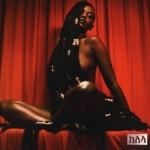
Take Me Apart by Kelela
Album Watch
With great anticipation, Kelela's debut album emerges as an epic portrait of an artist spanning the...
dance electronic R&B pop
TheDefunctDiva (304 KP) rated Bohemian Rhapsody (2018) in Movies
Feb 17, 2019 (Updated Feb 17, 2019)
I want it all. I want it all. I want it all. And I want it now
Contains spoilers, click to show
“I want it all. I want it all. I want it all. And I want it now.”
“I Want It All,” Queen, The Miracle, 1989
I am hating having to write this review though I feel compelled to do so. I bought this movie knowing I would like it. I didn’t have much money left in my checking account, but I thought, yes, this would be worth what little I had left to spend. I gifted it to my kiddo for Valentine’s Day knowing she would surely love it, too.
I didn’t love it. I didn’t even really like it.
I haven’t made a mistake this bad since the much-renowned Lost in Translation. Why the ire? Because Bohemian Rhapsody taught me some things, but not enough. Not what I wanted to know. I wanted to learn more than what a rudimentary Google search would have taught me about the band. Instead, I obtained only basic information about the band’s success. I think to really do the band justice you would need a series. Maybe that is my problem. The film had too much general information crammed into it, and I needed MORE, PEOPLE.
I should have liked this film because it revolved around Queen’s music. The best thing about this film is the soundtrack. I think contemplating some of Queen’s lyrics throughout would have really enhanced the film, though. They talked about the poetry but didn’t examine it. And I was disappointed.
Malek’s Mercury just didn’t do it for me though I admire his dedication to the craft. I do think he did an excellent job, but there was something missing that I can’t put my finger on. It felt very much like pretending. And I can’t even adequately explain why. I did love the costuming though. Especially the hair. The transformation of Mercury from boy to man was impressive. It made me want to grow a mustache.
The supporting characters were stereotypical. The supporting cast members might have been cardboard cutouts for all of the attachment I felt to them. The film also didn’t undertake the concept of what it meant to be LGBT in that era. Therefore, it didn’t fully explore the ramifications of the risks that Mercury was taking both professionally and personally. Conflicts just didn’t resonate with the high drama I felt they should have especially considering the in-your-face elements of Mercury’s personality. The passion just wasn’t there. And a real miracle would have been adequately examining the collaboration between the musicians.
I also felt the film was generally stilted by the writing, which seemed comprised of the most overused clichés in the English language.
Bohemian Rhapsody didn’t delve into the AIDS crisis deep enough to evoke much of an emotional response in me. I appreciate that Freddie Mercury didn’t want his life to be a “cautionary tale.” I get that. But the tragedy of his death seemed really downplayed to me for some reason. I wasn’t expecting the emotional response you would get from a film like Philadelphia. But something close would have been nice. Maybe I’ve seen too many films that focus on tragedy and expected to be weeping by the end of the film. Or the beginning of the film, or at any point during the film. But I was left feeling hollow.
The crowd scene from Live Aid and the Live Aid performance rightfully stole what remained of this show. The looks on the faces of the crowd. The expanse of the crowd. The scene reflected what it must have felt like to be a performer or a fan in such a large venue. Malek was awesome in this scene and deserves his due. It might be what earns him the Oscar.
I hate to say it, but I liked Mark Wahlberg and Rock Star (2001) better than I liked this movie. I just felt they could have done a better job with it. It didn’t live up to the hype.
And now I’ve touched upon the real issue. I could never get enough of this band, or of Mercury, and DAMNIT. The experience they provided fans around the world was just gone too soon.
And I just don’t feel the movie did the band or Mercury’s life justice.
I spent my Saturday listening to music in my car, wondering what a septuagenarian Mercury would have thought of today’s saturated music market. I imagine he would have been like my late father, fascinated by both the popular and the underground.
Ok, NOW I’m crying.
But touch my tears, with your lips
Touch my world, with your fingertips.
And we can have forever
And we can love forever
Forever is our today…
Queen, “Who Wants to Live Forever,” It’s Kind of Magic, 1986
“I Want It All,” Queen, The Miracle, 1989
I am hating having to write this review though I feel compelled to do so. I bought this movie knowing I would like it. I didn’t have much money left in my checking account, but I thought, yes, this would be worth what little I had left to spend. I gifted it to my kiddo for Valentine’s Day knowing she would surely love it, too.
I didn’t love it. I didn’t even really like it.
I haven’t made a mistake this bad since the much-renowned Lost in Translation. Why the ire? Because Bohemian Rhapsody taught me some things, but not enough. Not what I wanted to know. I wanted to learn more than what a rudimentary Google search would have taught me about the band. Instead, I obtained only basic information about the band’s success. I think to really do the band justice you would need a series. Maybe that is my problem. The film had too much general information crammed into it, and I needed MORE, PEOPLE.
I should have liked this film because it revolved around Queen’s music. The best thing about this film is the soundtrack. I think contemplating some of Queen’s lyrics throughout would have really enhanced the film, though. They talked about the poetry but didn’t examine it. And I was disappointed.
Malek’s Mercury just didn’t do it for me though I admire his dedication to the craft. I do think he did an excellent job, but there was something missing that I can’t put my finger on. It felt very much like pretending. And I can’t even adequately explain why. I did love the costuming though. Especially the hair. The transformation of Mercury from boy to man was impressive. It made me want to grow a mustache.
The supporting characters were stereotypical. The supporting cast members might have been cardboard cutouts for all of the attachment I felt to them. The film also didn’t undertake the concept of what it meant to be LGBT in that era. Therefore, it didn’t fully explore the ramifications of the risks that Mercury was taking both professionally and personally. Conflicts just didn’t resonate with the high drama I felt they should have especially considering the in-your-face elements of Mercury’s personality. The passion just wasn’t there. And a real miracle would have been adequately examining the collaboration between the musicians.
I also felt the film was generally stilted by the writing, which seemed comprised of the most overused clichés in the English language.
Bohemian Rhapsody didn’t delve into the AIDS crisis deep enough to evoke much of an emotional response in me. I appreciate that Freddie Mercury didn’t want his life to be a “cautionary tale.” I get that. But the tragedy of his death seemed really downplayed to me for some reason. I wasn’t expecting the emotional response you would get from a film like Philadelphia. But something close would have been nice. Maybe I’ve seen too many films that focus on tragedy and expected to be weeping by the end of the film. Or the beginning of the film, or at any point during the film. But I was left feeling hollow.
The crowd scene from Live Aid and the Live Aid performance rightfully stole what remained of this show. The looks on the faces of the crowd. The expanse of the crowd. The scene reflected what it must have felt like to be a performer or a fan in such a large venue. Malek was awesome in this scene and deserves his due. It might be what earns him the Oscar.
I hate to say it, but I liked Mark Wahlberg and Rock Star (2001) better than I liked this movie. I just felt they could have done a better job with it. It didn’t live up to the hype.
And now I’ve touched upon the real issue. I could never get enough of this band, or of Mercury, and DAMNIT. The experience they provided fans around the world was just gone too soon.
And I just don’t feel the movie did the band or Mercury’s life justice.
I spent my Saturday listening to music in my car, wondering what a septuagenarian Mercury would have thought of today’s saturated music market. I imagine he would have been like my late father, fascinated by both the popular and the underground.
Ok, NOW I’m crying.
But touch my tears, with your lips
Touch my world, with your fingertips.
And we can have forever
And we can love forever
Forever is our today…
Queen, “Who Wants to Live Forever,” It’s Kind of Magic, 1986
